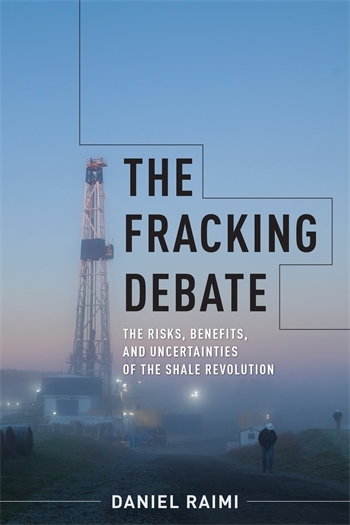A Coney Island Reader — The Warriors
A Coney Island Reader: Through Dizzy Gates of Illusion, edited by Louis and John Parascandola, includes numerous portraits of the area that celebrate its beach, sense of fun, and as a respite from the hectic city. The flip side, of course, is that Coney Island as a “Sodom by the Sea,” where garishness and menace run amuck.
In the 1960s and 1970s, the decay of Coney Island mirrored the decay of New York City. This sense of Coney Island is perhaps most famously captured in Sol Yurnick’s The Warriors (1965) which was made into a 1979 film by Walter Roy Hill.
Below is a clip from the film in which The Warriors return to their Coney Island home after a night of fighting and running from other gangs. Below that is an excerpt from the book in which the same scene treated somewhat differently.
July 5th, 5:20–6:00 a.m.
Before going home, Hinton led The Junior and Dewey down the street toward the beach. They followed him; he had become the Father. The morning wind was coming at them from the sea. It was still hot, but every step took them into cooler and cooler areas. It was lighter above the housetops, but still dark below.
They walked toward the boardwalk. When they came to the last block, Hinton halted them before crossing the street. He stood, hand raised, looking up and down. Nothing there but a garbage truck, grinding refuse, yellower than the murky light coming down from the overcast sunrise. The street lights were paling; they had blue, fluorescent edges. Hinton waved his hand the way patrol leaders did; they crossed the street, walking cool, alert for surprises. Far up the street a Headbuster patrolled, his back toward them. They were on their territory now; everything had a tremendous and comforting familiarity. They knew it to its confines, six short blocks by four long blocks. They could cover it in a short time—each brick was completely known, each stain, each sign, each gunmark on the concrete sidewalks, each hiding place. It was like knowing an endless and soul-freeing space where there could be no real threat. There wasn’t as much space in the rest of the whole city. They drank it all in, everything from the cracked asphalt to the strutty rise of the roller coaster over the houses. It was there. There. Comforting after their night. They began to walk along the last block before coming to the boardwalk.
Hinton smelled the cool sea wind and began to feel a joyful excitement and quickened his step again. The boys moved a little faster. Hinton began to trot. They trotted after him. He began to shout, shouting nothing, letting the choking in his throat find a wordless opening. He began to run. They ran after him, laughing, silly, unable to control themselves. Was this all there was to being a man,
Hinton wondered as he ran? Was this the way you became a leader, a Father? He ran up the ramp to the boardwalk. They ran after him; their feet clattered on the wood, keeping time. A few people strolled along the empty stretch of wooden walk which disappeared along both sides, fading into the morning’s red haze. A few fishermen were arriving for early surf fishing. Farther off, a family loaded with blankets and beach equipment crossed the boardwalk, coming to the beach early. The morning sun was balled red in the haze, hanging off to the right. The littered sand and the red-stained water, placid under the wind, lay ahead.
Hinton pointed out and yelled, “The Ocean!”
They yelled, “The Ocean, The Ocean!” and they all laughed hysterically.
Hinton ran down the stairs to the sand and all the way down the beach to the water, veered off sharply to the left, slipping, touching the soft surge of the wave, and feeling the wetness coming in through the rips in his shoe. It was chill-shocking, burning on his abrasions, and then cooling and pleasant. He dipped his scraped hand into the water and shook loose drops into the air.
They ran. They couldn’t stop laughing now, trying hard to keep the joy from degenerating into baby giggles. They cackled and made howling, shrieky sounds. A few gulls flew up at their approach; wind blew scraps of paper lightly, lifting them; sand grains sprayed upward as their running feet hit the beach. The wind from the sea was cooling now, almost chilling, and all the air that had stifled them the whole night seemed to be clearing away, and it was as if they were coming loose from a palpable thickness now; every step they took was lighter and they felt hilariously lifted off the ground until they barely felt their exhaustion. Hinton no longer cared that the ruination of his fancy Italian-style shoes that had begun in the park— how far away that seemed, as if it hadn’t even happened that day or that week or ever, really—was almost complete now. Where was he going to get another fifteen bucks for shoes like these? It didn’t matter. It didn’t matter at all. [. . .]
The war party was over. Hinton turned and began to walk back to the [b]oardwalk. The others followed. It was understood. Hinton was now Father.
They walked down the beach for a few blocks. They turned in toward the land and began to walk home. It was close to six o’clock now and it was completely light on the beach. The shadows were still hard and dark in the streets. The seawind blew warm dirt up from the streets. Here the wind smelled of salt, rank weeds, picking up the smells of decaying houses, sour old wood, carrying the garbagy smells of concession-refuse inland.



